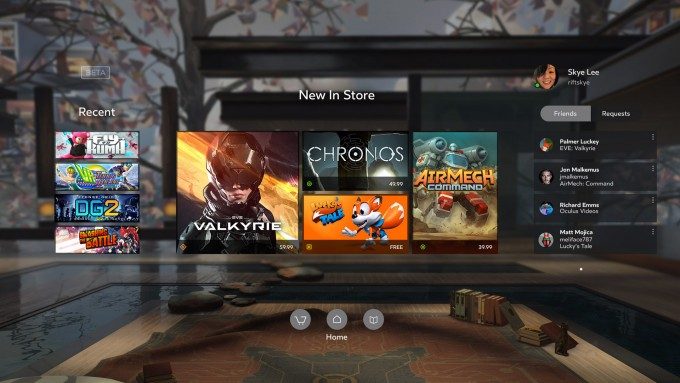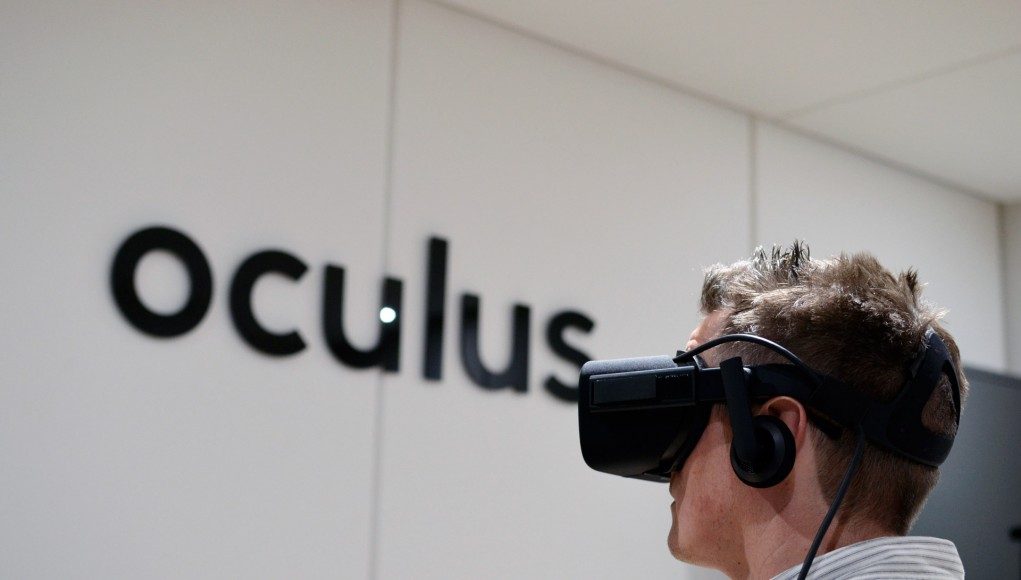Past Parallels and Our Take on the Present

If this is all strongly reminiscent, it should be. This sort of stand off between community and corporation has happened before, on many platforms. Sony’s battle to keep it’s PlayStation 3 console secure and free from home brew software (and, unfortunately, piracy) versus the formidable hacker Geoh0t (aka George Hotz). The cat and mouse chase between Sony and Hotz and other members of the hacking community, with each successive closing of exploits via firmware updates seen as the next new challenge, and subsequently beaten, continued until Hotz was sued by and settled with Sony. Apple’s seemingly endless fight to prevent their iOS operating systems from circumvention via exploits known as ‘jailbreaking’ is another striking parallel.
But has Oculus done anything wrong here? That’s an open question of course and depends on your point of view. In terms of protecting IP within Oculus Home, it does seem like a logical step “to curb piracy and protect content and developers over the long term,” after all, if for whatever reason a developer wants to distribute content only for the Rift, it’s up to Oculus to make sure that desire is protected, but it certainly goes against the grain of PC gaming, where traditionally once you own a game you can run it on a broad array of hardware.

As LibreVR alludes in their Q&A above however, it’s difficult to accept Oculus’ actions as purely one of DRM protection and assertions that Revive wasn’t the catalyst for the change has been questioned by the community. The previous exploit didn’t tamper with the so-called ‘Entitlement Check’, the bit that checks a user owns the software he or she is trying to run, merely the game-level check that the ‘correct’ VR headset was connected. So viewing the Home 1.4 update as anything but a move on the part of Oculus to ensure only the Rift can be used with Oculus software feels like a tough sell. With that said, I’d never presume to know what concerns Oculus may have had relating to Revive‘s original methods; after working in web hosting for some 20 years, there are some security vectors that are obscure and unwise to elucidate upon.

Oculus’ desire to create a curated and in many cases exclusive content portal is far from new. The real issue largely stems from mismanaged expectations. More specifically, that Oculus Founder Palmer Luckey has said that the company is not interested in forcing people to use only Oculus hardware to play their games, even those financed and published by them. One Reddit response in particular, in a rather heated thread is probably the best example:
If customers buy a game from us, I don’t care if they mod it to run on whatever they want. As I have said a million times (and counter to the current circlejerk), our goal is not to profit by locking people to only our hardware – if it was, why in the world would we be supporting GearVR and talking with other headset makers? The software we create through Oculus Studios (using a mix of internal and external developers) are exclusive to the Oculus platform, not the Rift itself.
The issue is people who expect us to officially support all headsets on a platform level with some kind of universal Oculus SDK, which is not going to happen anytime soon. We do want to work with other hardware vendors, but not at the expense of our own launch, and certainly not in a way that leads to developing for the lowest common denominator – there are a lot of shitty headsets coming, a handful of good ones, and a handful that may never even hit the market. Keep in mind that support for the good ones requires cooperation from both parties, which is sometimes impossible for reasons outside our control.
So whilst you could argue Oculus has every right to actively prevent circumvention of the exclusive aspects of their platform, or even that as a corporate entity they’re also entitled to prevent software to be used on non-Oculus hardware, the above quote may have lead some to believe otherwise, and may have influenced their VR headset purchase. Luckey is well respected among VR enthusiasts and his words carry weight; in the absence of any other official rebuttals of this statement, what other expectations should users have had?
Luckey’s comments above may hint at frustrations with the current situation, a possible inference from “impossible for reasons outside our control” that Oculus had attempted to bridge the headset compatibility gap at some point but hit an impasse. And yes, whilst Oculus may well be backed by megacorp Facebook, it’s difficult to see Valve as the the plucky underdog in this story, holding as they do keys to the biggest online distribution portal for PC games in the world. Those with long memories will remember that Steam, launched alongside Half-Life 2 in 2004, has itself travelled a long and rocky road before it reaching its current levels of ubiquity and success.
The lingering question is: will Oculus’ approach to LibreVR’s Revive and any others that appear in the future mark the company out as anti-consumer or even that they’re actively stifling the proliferation of VR as a platform? Those are sentiments you’ll see a lot trawling the many, many discussions on this topic and one I’m not sure any of us can answer just yet. It’s certainly not winning them any PR wars right now, and on the back of their continuing difficulties to get the Oculus Rift headsets into people’s hands, this latest fiasco has come at a bad time.
We’d love to hear your thoughts on the subject Revive Vs. Oculus Home, feel free to vent your support or frustrations in the comments section below.








